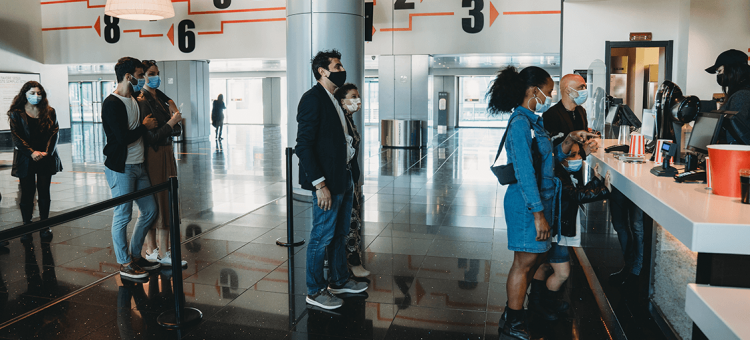Key findings:
- Consumer confidence sinks to its lowest-ever score, 41 out of 100, ticking down from the previous low of 42 at the end of last year (poll has been running since Jan. 2017)
- The pandemic weighs heavily on savings: fully half (50%) of adults report depleted savings compared with before the pandemic; that’s triple the proportion that’s boosted their savings (16%).
- The ongoing burden of COVID-19 is widespread: 40% of adults say their families are worse off financially now than prior to the pandemic.
- Pay raises struggle to beat out inflation: 55% of workers received a pay raise in the past year, yet 41% say their raise hasn’t kept up with inflation
- Inflation concerns remain nearly universal: 89% are concerned about inflation, roughly unchanged from December 2021 (88%)
Consumer confidence hits all-time low
Consumer confidence sinks to an all-time low of 41, eking below the previous low-point (42) seen in December 2021. Confidence changes significantly depending on how household finances have been impacted since the pandemic.
- 84% who are financially worse off now than before the pandemic say periods of widespread unemployment or depression is likely to take place over the next five years vs. 48% who are better off now and 53% whose finances are unchanged
- 50% who are financially worse off now than before the pandemic expect their family to be worse off financially a year from now vs. just 10% who are better off now and 16% whose finances haven’t changed
Savings diminish amid the pandemic
Half (50%) of adults say they have less saved now than before the pandemic. Just 16% have more saved, and 31% have about the same in savings.
- Low-income households (earning less than $50,000) struggle the most: just 9% say they have more saved than before the pandemic vs. 15% of middle-income households (earning more than $50,000, but less than $100,000) and 31% of high-income households (earning above $100,000)
- Young adults show resilience: 18% of those 18-34 say they’ve saved more vs. 14% of those 35-54 and 17% of those 55+
About a third (35%) say they are just managing to make ends meet financially, while 12% are drawing on their savings and 13% are running into debt. Just 9% are saving “a lot”, and 29% are saving “a little”.
- 20% of lower-income households are running into debt vs. 10% of middle-income households and 6% of high-income households
- Employed adults are almost equally likely to say they are just managing to make ends meet compared with adults who are not employed (35% vs. 36%)
- College grads greatly out-save those who’ve attended some college or earned a high school diploma (53% v. 31%)
- Hispanics, Blacks, and adults of another race are least likely to be saving: just 32% of Hispanics, 35% of Blacks, and 30% of adults of another race are saving vs. 40% of whites, 40% of Asians
- Men are more likely than women to be saving (43% vs. 34%)
COVID continues to impact household finances
The financial effects of COVID carry on: 40% of adults say their family is worse off financially now than prior to the pandemic. Just 16% say they’re better off than before the pandemic, and 41% say their finances haven’t changed.
- Lower-income households are hit particularly hard: just under half (47%) say they’re doing worse now vs. 40% of middle-income households and 30% of high-income households
- Unemployed adults are more likely to say they are worse off now compared to employed adults (44% vs. 39%)
- Over half (56%) of Republicans say they’re worse off than before the pandemic compared with 25% of Democrats and 44% of independents
Financial challenges come amid economic uncertainty: 40% rate the current state of the economy as “poor,” 20% rate it as “good,” and even fewer (3%) say it’s "excellent." Perceptions of the economy are likely to change along with a household’s current financial situation.
- 64% who say they’re financially worse off now than before the pandemic rate the economy as “poor”, while 28% rate it as “fair”
- For those who are financially better off now, 34% rate the economy as “good” and 10% say it’s “excellent”
Even those with pay raises struggle to stay ahead
Over half (55%) of workers say they’ve received a pay raise in the past year, roughly in line with a December 2021 New York Times|SurveyMonkey poll. However, 41% say their pay raise hasn’t kept up with inflation, and a third (34%) haven’t received a raise at all. About 1 in 10 (9%) took a pay cut. Those whose pay raises haven’t kept up with inflation are struggling the most.
- 40% of those who received a pay raise that did not keep up with inflation say their household’s finances are worse off now than before the pandemic while 43% say their finances are unchanged; just 16% say they’re better off
- For those whose raises outpaced inflation, just 4 in 10 (41%) say they’re better off financially now than before the pandemic, and 45% say they’re financially unchanged
Four in 10 (40%) workers who received a pay raise that didn’t keep up with inflation say they’re just managing to make ends meet financially vs. 36% who have not received a raise and 18% whose pay raises kept up with inflation.
- They are far less likely to be saving compared with those whose raises kept up with inflation (38% vs. 74%)
- They are almost equally likely to be drawing on savings compared with those who haven’t received a pay raise at all (10% vs. 12%)
Inflation concerns linger
As inflation hits a 40-year high, about 9 in 10 (89%) say they’re concerned about inflation, roughly unchanged from December 2021. Just 9% say they don’t have concerns about inflation.
- Concern remains equally high across income groups: 89% of lower-income households, 90% of middle-income households, and 89% of high-income households are concerned about inflation
- Perceptions shift based on household finances: 75% who have less in savings now than before the pandemic are “very concerned” about inflation vs. 38% who have more in savings and 54% who have about the same in savings
- Republicans are particularly concerned: 81% are “very concerned” about inflation vs. 44% of Democrats and 62% of independents
The majority (76%) of adults are concerned inflation will continue for an extended period of time. Just 2 in 10 (18%) don’t expect inflation to continue for more than a few months, and only 4% say prices don’t seem to be increasing faster now than before.
- 91% of households who say they’re financially worse off now than before the pandemic fear inflation will continue for an extended period vs. 60% who are better off and 70% whose finances are unchanged
To combat inflation, most (56%) say they would buy less than what they usually buy. About 4 in 10 (38%) would switch to cheaper versions of what they buy and 28% would work more hours or find another source of income. Just 10% would ask their boss for a raise. These numbers are nearly unchanged from December 2021.
Those who have found a new job aren’t necessarily better off
In the last 6 months, 14% of employed adults say they’ve left a job for a different job, and 21% have considered quitting. Just 3% have quit without lining up a new job, and 4% were laid off. In comparison, just 4% of adults who are not employed have left a job for a different job, 3% have considered quitting and 5% quit without lining up a new job. About 1 in 10 (9%) were laid off. However, those who have left their jobs aren’t necessarily doing better.
- Overall, only 24% who have quit a job for a new one say their family is financially better off than before; 37% say they’re worse off and 37% are doing the same financially
- Just 20% of those who quit for a new job say they’re saving more now than before the pandemic vs. 21% who quit without lining up a new job, 15% who’ve considered quitting and 11% who were laid off
Read more about our polling methodology here.
Click through all the results in the interactive toplines below:



